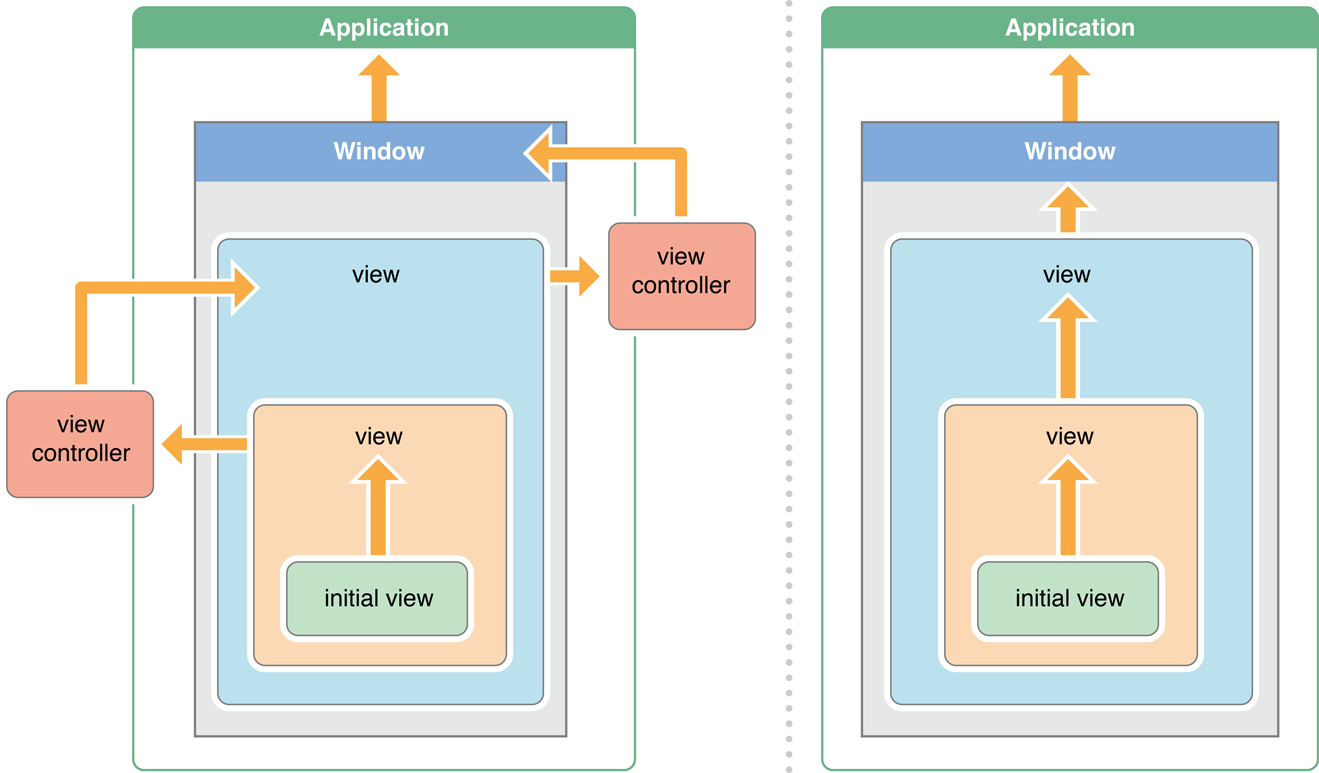I understand that a first responder object is the receives a callback signal according to input activity, etc and that it will bubble it up the chain until a responder willing to handle it can be found.
But more formally, what is the scope of the first responder? For instance, is it an application-wide responder? It seems like being a first responder is simply saying that this particular object will receive notification of interaction. Can another responder steal the first responder status?
Please explain or direct me to some pertinent information. I've read Apple's general explanation of what a responder is. I'm looking for an explanation that's little more built out.
The first responder is usually the first object in a responder chain to receive an event or action message. In most cases, the first responder is a view object that the user selects or activates with the mouse or keyboard.
The first responder is whatever control is currently ready to respond to actions. In UIKit this is usually the control that has activated the keyboard and is receiving input.
resignFirstResponder()Notifies the receiver that it's been asked to relinquish its status as first responder in its window.
The responder chain is the series of events that happen once we start interacting with the application on the iPhone. As an example, whenever we tap on an UITextfield, the whole series of responder initiates. It happens because of elements like UIView, UIViewController, UIApplication subclass UIResponder.
The scope of a first responder in iOS is determined by view hierarchy. Remember, a responder is part of a hierarchy of responders, and defined by Apple's documentation:
A responder is an object that can respond to events and handle them. All responder objects are instances of classes that ultimately inherit from UIResponder (iOS) or NSResponder (OS X).
Practically speaking, all responders are part of a chain of potential responders leading all the way up to the Application itself. This means that the scope of the responder is determined by how far up the chain you have to go to get an object capable of handling a response. If the first responder is a UI element, such as a UITextField, your scope is tied to the scope of that responder.
In this image, iOS first responder hierarchy is shown on the left (OS X on the right):

To answer the second part of question, yes, objects can 'steal' first responder status if a user interacts with an element, for instance:
...and you can bestow first responder status on them with certain functions:
[textField3 becomeFirstResponder]; //This is now the first responder [textField4 becomeFirstResponder]; //Now textField4 has 'stolen' first responder status [textField4 resignFirstResponder]; //The text field has resigned its first responder status to the next level up For anyone else reading this who hasn't hit up Apple's documentation on this, a good starting place is the Responder hierarchy explanation found here: https://developer.apple.com/library/ios/documentation/General/Conceptual/Devpedia-CocoaApp/Responder.html
I hope this helps!
It's a property of the window. The window has at all times no more than one first responder. Any UIResponder can claim first responder status by being sent becomeFirstResponder, and that is why you can cause a UITextField to get "focus" by sending that message to it.
If you love us? You can donate to us via Paypal or buy me a coffee so we can maintain and grow! Thank you!
Donate Us With